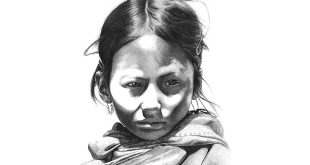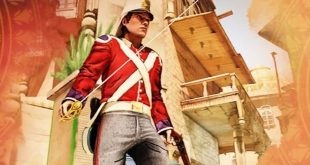Question: What is veto power? Answer: The power or right vested in one branch of a government to cancel or postpone the decisions, enactments, etc., of another branch, especially the right of a president, governor, or other chief executive to reject bills passed by the legislature. The exercise of this right. …
Read More »Search Results for: England
NCERT 9th Class (CBSE) Social Science: Nazism and the Rise of Hitler
Question: Name the original name of the Nazi party. Answer: The original name of the Nazi party was the Nationalist Socialist German Workers’ Party, which was later renamed as the Nazi party. Question: Explain the purpose of the Enabling Act passed on 3rd March, 1933. Answer: This Act established dictatorship …
Read More »NCERT 9th Class (CBSE) Social Science: Pastoralists in the Modern World
Question: Who are nomads? Answer: Nomads are people who do not live in one place, but move from one area to another to earn their living. Question: What is Kafila? Answer: Kafila means a group of people. Several households of nomadic people move together for their journy and this group …
Read More »NCERT 9th Class (CBSE) Social Science: Forest Society and Colonialism
Question: Who was Dietrich Brandeis? Answer: Dietrich brandies was a German expert and the inspector General of forests in India who was united by the British here for his advice. Question: What are Parganas? Answer: A pargana is a cluster of villages. Question: What was the small fee called? Answer: If …
Read More »NCERT 9th Class (CBSE) Social Science: Socialism in Europe and the Russian Revolution
Question: Who were the ‘radicals’? Answer: The radicals believed in drastic change of society. A society based on majority rule and was in favor of women’s suffragette. They were opposed to privileges of landowners and wealthy factory owners. They disliked concentration of property in few hands. Question: What differentiated the ‘liberals’ …
Read More »NCERT 8th Class (CBSE) Social Science: Colonialism And Urban Change – Quiz
NCERT 8th Class (CBSE) Social Science: Colonialism And Urban Change – Quiz 5 Multiple Choice Questions related to NCERT 8th Class (CBSE) Social Science: Colonialism And Urban Change – Quiz: They lived in the sprawling Civil Lines area that came up in the north. In 1911, when King George V …
Read More »NCERT 8th Class (CBSE) Social Science: Craft And Industries – Quiz
NCERT 8th Class (CBSE) Social Science: Craft And Industries – Quiz 5 Multiple Choice Questions related to NCERT 8th Class (CBSE) Social Science: Craft And Industries – Quiz: Their fine quality and beautiful craftsmanship made them renowned all over the world. Printed Indian cotton textiles were popular in England for …
Read More »NCERT 8th Class (CBSE) Social Science: Craft And Industries
Question: Give two reasons why Indian textiles were renowned all over the world. Answer: Their fine quality and beautiful craftsmanship made them renowned all over the world. Question: Why were printed Indian cotton textiles I popular in England? Answer: Printed Indian cotton textiles were popular in England for their exquisite …
Read More »NCERT 8th Class (CBSE) Social Science: The Great Uprising
Question: What was the plea of Nana Saheb, the adopted son of Peshwa Baji Rao II? Answer: Nana Saheb pleaded that he be given his father’s pension when the latter died. Question: What was the first step taken by the Company towards ending the Mughal dynasty? Answer: The name of …
Read More »NCERT 8th Class (CBSE) Social Science: India After Independence
Question: When was the Indian Constitution adopted? Answer: The Indian Constitution was adopted on 26 January, 1950. Question: Which step has been described as revolutionary? Answer: All Indians above the age of 21 would be allowed to vote in state and national elections. Question: On what point did Nathuram Godse …
Read More » Class Notes NCERT Solutions for CBSE Students
Class Notes NCERT Solutions for CBSE Students








